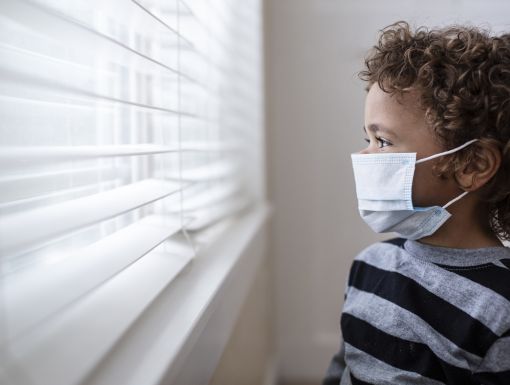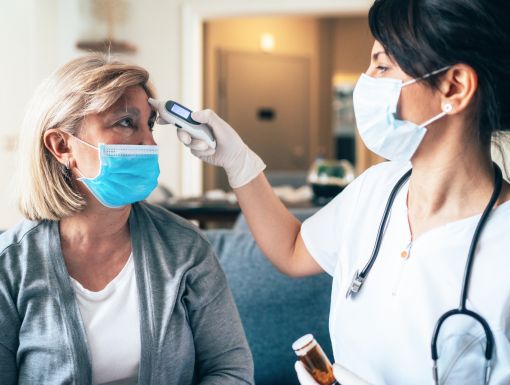
COVID-19 and Disabilities
The life-altering effects of COVID-19 have been tougher on people with intellectual disabilities and developmental disorders than anyone else. Because of their disabilities, they may have difficulty wearing a mask, maintaining social distance or even understanding why the precautions are needed.
Coronavirus disease is a respiratory illness that can spread from person to person. It’s spread mainly between people who are in close contact with each other. The risk of infection with COVID-19 is higher for people in close contact with someone known to have COVID-19, such as healthcare workers, direct support providers and household members.
Protect yourself
If you or someone you care for are at a higher risk of getting very sick from COVID-19, it’s important to take steps to prevent getting sick. Practice everyday preventative actions in the following ways:
- Ask direct support providers if they are experiencing symptoms or if they have been in contact with someone who has COVID-19
- Ask direct support providers to:
- Wash their hands when they enter your home and before and after touching you or any items in your home
- Clean and disinfect frequently touched objects and surfaces. This includes any equipment such as scooters, walkers, canes and oxygen tanks
Actions for people with disability and their household
It’s important to reduce your exposure to COVID-19. If you have any difficulty following these basic protection measures (for example, you are not able to access a handbasin or sink to wash your hands regularly), work with your family, friends and caregivers to identify adaptations.
Here are a few things you can do to prepare during the COVID-19 pandemic:
- Plan what to do if you or your direct support provider gets sick. It’s important to create a contact list of family, friends, neighbors and local agencies that can help provide support.
- Plan at least two ways of communicating from home and work that can be used rapidly in an emergency. A landline phone, cell phone, text messaging and email are all great options. Write down this information and keep it with you.
- Avoid crowded environments and physical contact with other people. Take advantage of special opening hours for people with disabilities where these are offered.
- Make purchases online or request assistance from family, friends or caregivers.
- Have enough household items and groceries so that you will be comfortable for a few weeks. Make sure you have at least a 30-day supply of over the counter and prescription medicines and any other medical equipment you may need. Some health plans allow for a 90-day refill on prescription medications. Consider discussing this option with your healthcare provider.
- Work from home if possible.
Vaccinations
Vaccination will play a broader role beyond preventing infections. Vaccinations are critical in resuming education and the full array of treatments and other services for those with intellectual disabilities and developmental disorders. Young children with developmental delays are losing their skills and receding progression.



